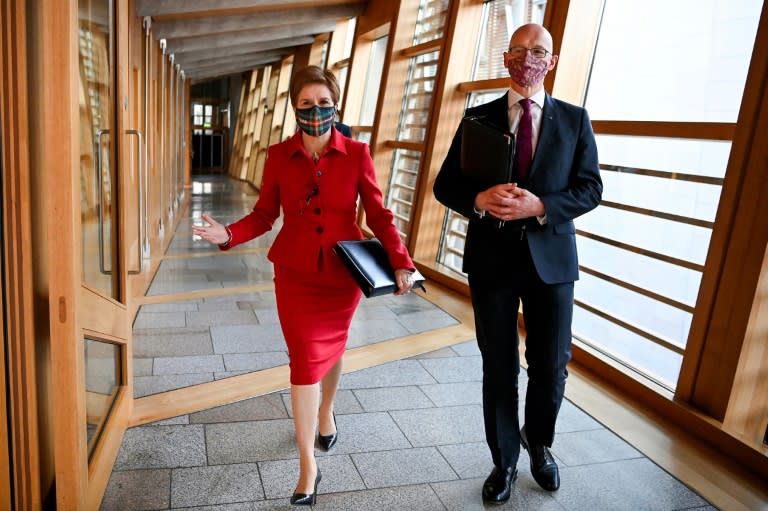Political veteran set to be named Scotland's next leader

Scottish political veteran John Swinney on Monday was named head of the pro-independence SNP party, leaving him poised to become Scotland's new leader.
Swinney, 60, said on X, formerly Twitter, he was "deeply honoured to have been elected as leader of the SNP" after Humza Yousaf resigned last week after little more than a year as Scottish leader and head of the Scottish National Party (SNP).
The SNP confirmed Swinney's election after nominations for the post closed at noon (1100 GMT) without any other challengers emerging.
He told reporters later that alongside advancing the case for Scottish independence his key policy idea was the eradication of child poverty.
"It is a curse and under my leadership I want to eradicate it in Scotland," he said.
On independence he said the party would "get our act together" to win back the votes of supporters who may have turned away from the party in recent years.
Humza stepped down last Monday as he faced a confidence vote in the Scottish parliament that he was set to lose having ditched his junior coalition partners, the Scottish Green Party, in a row over climate policy.
Swinney, an old party hand who led the SNP from 2000 to 2004 when the nationalists were in opposition, will now face a vote in the Scottish parliament later this week.
But he inherits a difficult political legacy, with former SNP leader and ally Nicola Sturgeon embroiled in a party funding scandal and a challenging domestic policy landscape.
- Loss of momentum -
Critics have accused the SNP, in power in Edinburgh for 17 years, of focusing on pursuing independence at the expense of issues like the cost-of-living crisis and health.
The party has struggled to rebuild momentum for another independence vote since Scotland voted against leaving the UK in a referendum in 2014.
Support for independence, meanwhile, has since fallen to between 41 and 43 percent, according to three opinion polls taken in April.
With the SNP heading a minority government in the 129-seat Scottish parliament, Swinney will need the support of another party to form a governing coalition or to pass legislation.
But he said he would not resurrect the defunct powersharing deal between the SNP and the Scottish Greens, known as the Bute House Agreement.
"I don’t intend to return to the Bute House Agreement," he said, adding that he preferred to take issues on a case-by-case basis.
The government is currently two votes short of an overall majority, only surviving the no-confidence vote brought by the Labour opposition last week thanks to the backing of the Greens.
The ructions in the SNP are being closely watched in London, ahead of a UK general election later this year.
The SNP currently holds 43 seats in the UK parliament.
The UK's main Labour opposition is hoping for a resurgence in its former stronghold north of the English border to help it win an outright majority in the general election.
The Scottish Parliament, re-established in 1999, has limited powers to set policy in areas such as health, education, transport and the environment.
The UK government in London retains powers for countrywide issues such as defence and foreign policy.
har/cw

 Yahoo News
Yahoo News 
